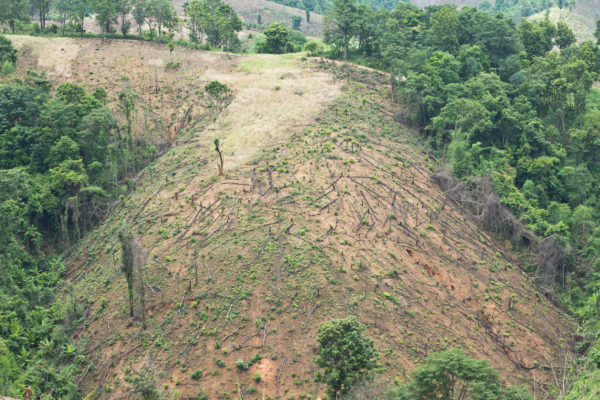Fires in the Amazon and international efforts to help Brazil put them out, which Brazilian President Jair Bolsonaro has largely resisted, have made headlines recently. For many, fires in a rainforest and why Brazil would say no to international help seem odd. But one only has to look at the politics of the country and region.
About 60% of the Amazon rainforest resides in Brazil, which is about 6.5 times the size of Texas, and Brazilians have long been sensitive to international efforts to tell them what to do with their sovereign territory.
To understand that, though, we also need to appreciate the global significance of the rainforest, which serves as a major source of biodiversity. The forest plays a key role in the water cycle. Between 30% and 40% of the rainfall in the Amazon comes from the forest’s own evapotranspiration.
The Amazon also plays a critical global function: absorbing carbon dioxide, the major gas responsible for climate change. About 25% of the carbon that is absorbed on land is absorbed by the Amazon.
Cutting and burning the forests releases that carbon dioxide. Nearly 10% of global greenhouse gases comes from deforestation and land use, and Brazil has been the largest source of those emissions from deforestation behind Indonesia.
In drought years, natural fires in the Amazon can occur, but that isn’t what’s happening this year. These fires are being deliberately set by loggers and farmers to clear land that has already been deforested. Bolivia also is experiencing them, and they are some of the largest since 2010. The fires are a symptom of a wider problem of deforestation, which has only gotten worse since Bolsonaro took office in January.
Brazil’s greenhouse gas emissions from deforestation were once much higher, but after deforestation became a highlighted international issue in the 1990s, Brazil enacted major efforts to address the problem, even though it resented the international community’s meddling.
Under the administration of the left-leaning Luiz Inácio Lula da Silva, deforestation declined dramatically. Between 2004 and 2012, deforestation declined by as much as 80%. However, those rules have been steadily loosened and not enforced since 2012, and deforestation has ticked back up again, even before Bolsonaro took office.
Deforestation is still way down from the peak in 2004, but the problem is that as more of the Amazon is deforested, the less healthy it becomes. Already, nearly 20% of the Amazon has been deforested. Some scientists worry that if the level gets to 25%, the forest may have trouble recovering and experience more die-offs of trees.
The forest could become less able to create moisture and rainfall for the wider region, endangering the water supply of major cities such as São Paulo. The Amazon also might not absorb as much carbon.
Bolsonaro has made the problem worse. He is a right-wing former army captain and has allies in the agribusiness community who chafed at the rules governing land use and forests. Before the country’s democratic transition in the mid-1980s, Brazil’s military opened the Amazon to colonization and development, often at the expense of indigenous communities who lived there.
On some level, Bolsonaro is a return to that tradition and wants to see more unregulated economic development in the region including logging, farming, hydroelectric dams and roads. He and some others believe there is an international conspiracy to take the Amazon away from Brazil, and it is their duty to defend it by developing it.
Logging and farming interests have been emboldened and are clearing land illegally at higher rates than before, hoping that the new government will make their land grabs legal, including in existing or planned protected indigenous reserves and other conservation areas.
At the recent G-7 summit of major countries, French President Emmanuel Macron made the fires an international issue, which Bolsonaro rejected as an imposition on Brazil’s sovereignty. Given the low level of trust of Bolsonaro, G-7 leaders pledged only $20 million to fight the fires, which he also rejected.
Macron also raised the wider issue of deforestation, which probably will feature prominently in the upcoming United Nations special climate summit in New York.
Macron threatened to scuttle a trade deal between the European Union and countries in South America that had been 20 years in the making. That just might get the attention of Bolsonaro and more importantly other Brazilian elites who worry Bolsonaro’s hard line is bad for business. The fires that blanketed São Paulo in smoke also led to tens of thousands of protesters across the country.
Complicating matters is that Bolsonaro and Macron had an unusual personal spat, as Bolsonaro insulted Macron’s wife online, which led to a public rebuke from Macron, who said Brazil is probably ashamed of Bolsonaro, and he hoped Brazil soon would have better leadership.
Brazil’s previously elected president, Dilma Rousseff, was impeached for corruption and removed from office in 2016. You never know what might happen in Brazil, but Macron’s effort to internationalize the issue could backfire if it inflames Bolsonaro’s paranoia about foreign interference in the Amazon.
For those who care about the health of the Amazon and climate change, let’s hope Macron’s efforts lead to a change in the Bolsonaro government (or its successor) to put out the fires and protect the forest, for all our sakes.
Joshua Busby is an associate professor in the LBJ School of Public Affairs at The University of Texas at Austin. Busby held a field course in Brazil in 2014 and is an expert on climate change and global policy.
Eugenio Arima is an associate professor of geography at The University of Texas at Austin. He has studied the Amazon for many years and is originally from Brazil.
A version of this op-ed appeared in the Houston Chronicle.




